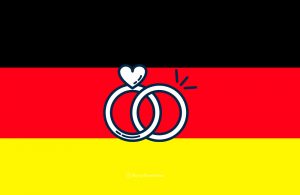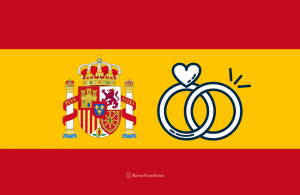Are marriages solemnized online in the United States of America legally valid in Spain?
According to the Civil Registration Law 20/2011 of July 21. Art. 58 (Ley 20/2011, de 21 de julio, del Registro Civil), any Spanish national may be married inside or outside of Spain:
– Before a judge, mayor, or civil servant indicated by the Spanish Civil Code
– In a legally recognized religious ceremony
They may also be married outside of Spain in the way established by the law in the place where the ceremony is held. Marriages of Spanish citizens held abroad are registered in the Consular Register (check Spanish Embassy) of the place where the marriage took place or directly in the Civil Registry in Madrid.
The concept of online marriage only started in 2019 and the law has not been updated since then. Spain follows the doctrine of lex loci celebration, which is a Latin term for a legal principle in English common law as “the law of the land (lex loci) where the marriage was celebrated”. Therefore, online marriage which is considered valid and legal in the US, which is the place where the marriage took place and accepted by US law, should be recognized in Spain as a valid marriage.
Source: BOE.es – BOE-A-2011-12628 Ley 20/2011, de 21 de julio, del Registro Civil.
PART I
How to get your marriage registered in Spain
Changes in the civil status of a Spanish citizen are recorded in the Spanish Civil Register. The registration of your marriage is recording the marriage certificate issued according to the law of the country where the marriage took place.
The form that must be completed and presented in the consular offices to register a marriage is the Data Declaration Sheet (Hoja declaratoria de datos), which can be downloaded here.
PART II
Registration of an online marriage in Spain
Spanish nationals who got married in the county of Utah, USA must register their marriage at the Consulate General where the marriage took place or at the Central Civil Registry in Madrid.
Procedure:
It is advisable to get a lawyer as your legal representative to carry the process in the Central Civil Registry in Madrid. Applicants` physical presence is not required if you have a lawyer as your legal representative.
Requirements:
- marriage certificate issued by the local foreign Civil Registry or religious marriage certification dully legalized or apostilled and translated by an official Spanish translator registered in Spain
- birth certificate of the Spanish spouse issued by the Spanish Civil Registry
- birth certificate of the foreign spouse dully legalized or apostilled and translated by an official Spanish translator registered in Spain
- Spanish national copy of passport or national I.D. card
- Copy of valid passport of the foreign spouse
- joint civil census registration
- application filled out and signed
- data form dully filled out
PART III
Conditions:
It would be a smart decision to check if you need a certificate of matrimonial capacity from the Court Clerk, Notary, Civil Registry Officer or consular/diplomatic officer of the place of residence of the Spanish national before you proceed to your online marriage.
It must be remembered, if the celebration of marriage was done abroad, the Civil Registry Officer will verify if the legal requirements for its validity are met according to Spanish Civil Registration Law. Once this verification has been done, the Civil Registry Officer will proceed to your marriage registration request.
According to the Article 59. Marriage registration, a marriage can be recognized if the marriage conditions which have been established and concluded in accordance with the procedure in Article 58 shall be registered in the Spanish Civil Registers (Article 58 as discussed above).
Source: BOE.es – BOE-A-2011-12628 Ley 20/2011, de 21 de julio, del Registro Civil.
PART IV
Processing time:
The average registration of marriage is four (4) months. However, please take note that the response time may vary depending on your application and external factors.
IMPORTANT INFORMATION
While we guarantee that online marriage is legal according to the laws in the US, it is not certain that the court of law and Immigration Services of your home country will recognize such union as valid. They may require further verification and additional documents if deemed necessary.













